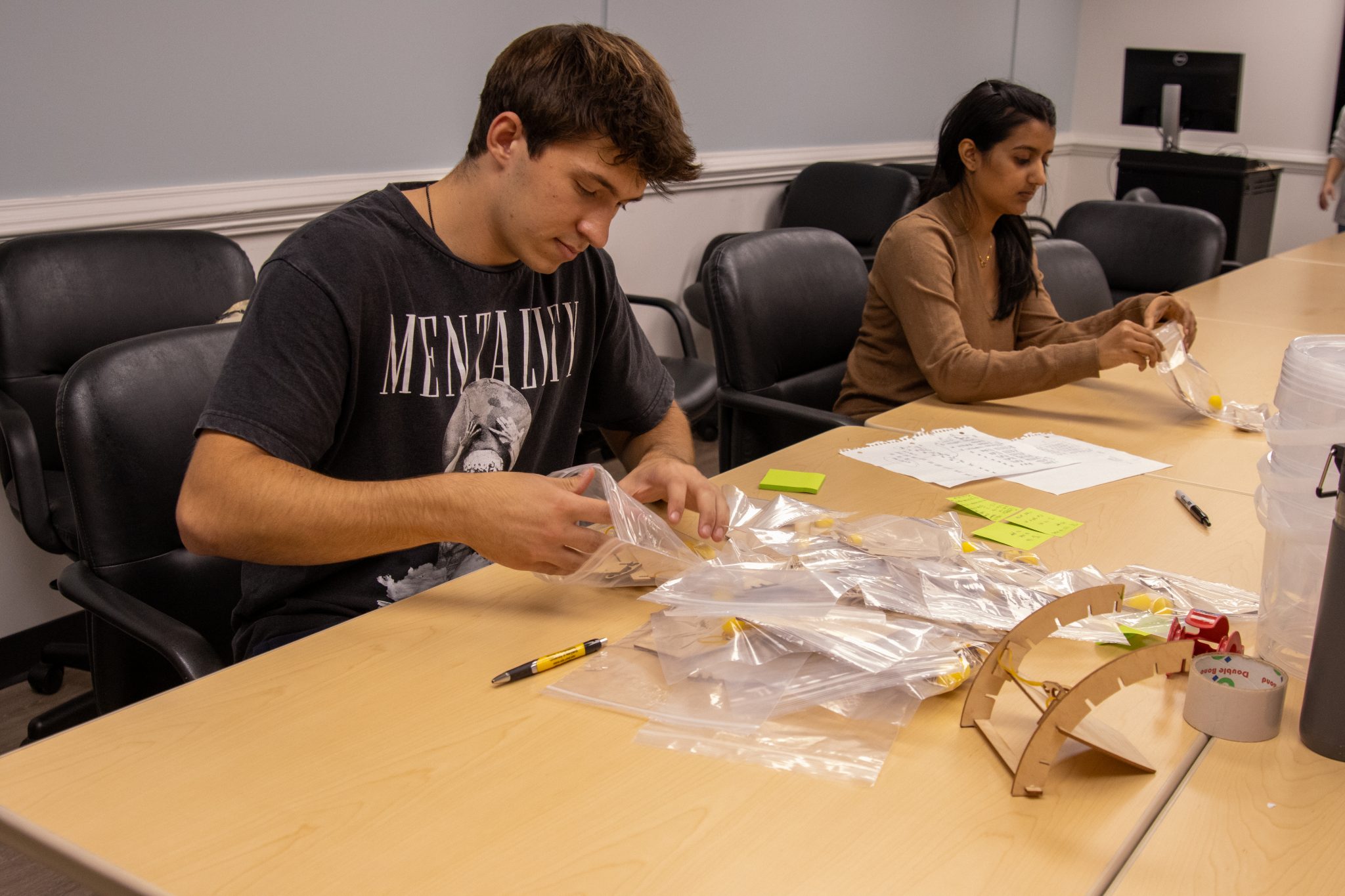By Logan Midler
For The Diamondback
University of Maryland engineering students in an entrepreneurial design realization course are developing kits to make science education more exciting for young learners.
Students in the course, led by mechanical engineering professor Vincent Nguyen, are developing “get out and learn,” or GOAL, kits. In collaboration with the engineering school’s Women in Engineering program, Nguyen started the GOAL kits initiative during the COVID-19 pandemic to ensure students did not miss out on STEM learning.
The kits include a slingshot that teaches young learners about projectile motion and materials to create a catcher. The kits help students learn concepts such as impulse, elastic collisions, material selection and sustainability, according to senior mechanical engineering major Jacob MacGregor.
[UMD students discuss environmental regulations ahead of 2024 election]
Each kit costs less than $2, which makes them a low-cost option compared to traditional STEM learning tools, MacGregor said.
The kits were provided to a summer event in Prince George’s County, which 650 kids attended, MacGregor added.
“They loved them,” MacGregor said. “They get super competitive. They get super into the whole design aspect.”
The children treated the summer event as a sporting event, Nguyen added.
“You would never think that a STEM event would be treated like a sporting event, but that’s kind of the point of what we want to create with these things,” Nguyen said.
Nicole Uhl, a senior mechanical engineering major, said the group is planning for 50 to 60 students from two middle schools to come to campus for an event where they participate in a challenge using the kits.
“I am excited to see some of the underrepresented people get their first exposure to engineering,” she said.
Senior mechanical engineering major Lucas Baldwin, who took the engineering course in spring 2024, shared how young learners who initially had little understanding of engineering found solutions to design challenges.
Baldwin said it is “incredible” to see how students who may not have a STEM background can be introduced to engineering and enjoy it.
[UMD offers AI chatbots for 10 courses this semester]
MacGregor hopes to expand the initiative’s reach by partnering with more teachers and schools. He added that the group aims to work with corporate sponsors, which would not only support STEM education, but also help companies connect with future engineers.
Moving forward, the team hopes the kits have a long-term positive impact on young learners’ futures, Nguyen said.
“If any of those kids who ever used the GOAL kit eventually come to [the university] as engineers, I feel like that would be really cool,” Uhl said.



